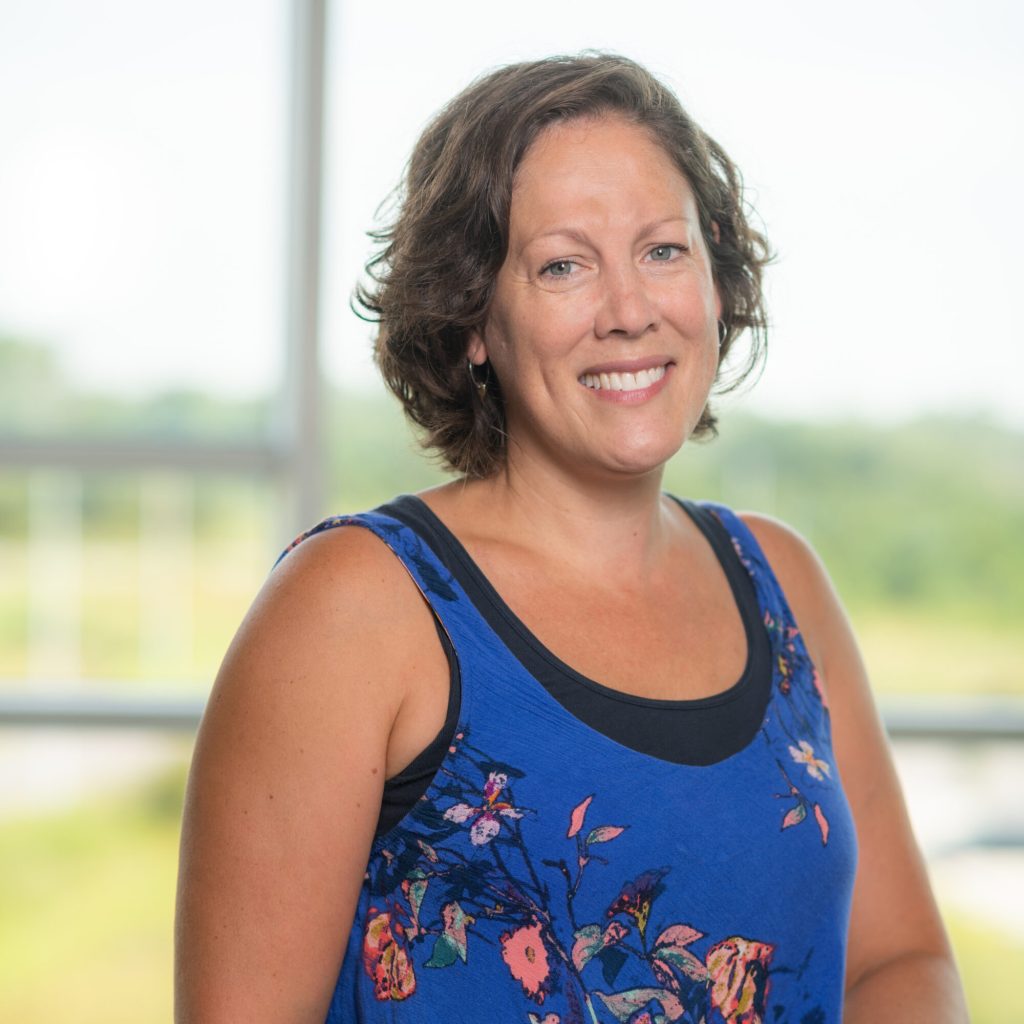Dubbs to use prestigious award from U.S. Department of Energy to promote women in clean energy
February 28, 2021
Research associate professor and Outer Banks Field Site director Lindsay Dubbs recently received a prestigious award from the United States Department of Energy. The U.S. Clean Energy Education and Empowerment Initiative (C3E) honored nine women from a range of clean energy fields. Dubbs was given the Education Award for her work in environmental assessment and marine hydrokinetic energy as the associate director of the North Carolina Renewable Ocean Energy Program at the Coastal Studies Institute.
The U.S. C3E Initiative, which is led in collaboration with the MIT Energy Initiative, Stanford Energy, and the Texas A&M Energy Institute, aims to close the gender gap and increase female participation, leadership and success in clean energy fields.
“By recognizing women in the field, it encourages us, bolsters us, and makes us feel more confident about our efforts,” Dubbs said. “ It also has created a community of women who can discuss and share our experiences and also network with one another. And then it also provides an $8,000 monetary award, and that monetary award is meant to be spent to continue to advance women’s role in this sector.”
Dubbs was originally going to use her monetary award to hold a networking event for women at the annual International Conference on Ocean Energy. The in-person program was suspended due to the COVID-19 pandemic. Regardless of changing global circumstances, she said she will use it to connect female professionals and students in renewable energy fields, particularly marine renewable energy, with opportunities and each other.
Dubbs already has experience connecting underrepresented groups with her field by organizing lessons and workshops for visitors at the Coastal Studies Institute. She held a STEM event for Girl Scouts that focused partially on marine renewable energy, and she has also worked with her colleagues at IE to host teachers and youth from surrounding counties at the Outer Banks Field Site. Dubbs also guest lectures at North Carolina Agricultural and Technical State University and Elizabeth City State University, both historically black universities.
Although women are underrepresented in her sector, Dubbs said she is hopeful because efforts like the U.S. C3E Initiative seem to be working. She has seen an increase in women at industry conferences over the past decade.
“The initiative helps to hopefully support, educational efforts where, if we reach women, young women see that there are female role models and women that are balancing things like family and careers in this field,” Dubbs said. “And that will hopefully help encourage them to pursue jobs in marine renewable energy.”
Dubbs’ work is integral to understanding climate change.
“Ecosystems, the organisms that live in them and the services that they provide humans are all being affected by climate change which is the result of greenhouse gas emissions from fossil fuel-based energy,” Dubbs said. “And so, the transition to renewable energy will hopefully offset some of those implications associated with greenhouse gas emissions. My work is really aimed at understanding and trying to mitigate and minimize negative environmental impacts associated with marine hydrokinetic energy and also in some cases trying to maximize the environmental benefit associated with marine hydrokinetic energy installations. A lot of that has to do with the siting of those marine renewable energy installations.”
Some forms of marine hydrokinetic energy include the kinetic energy in waves, ocean currents, and thermal energy gradients and the potential energy associated with tides.
Dubbs currently divides her time between the Renewable Ocean Energy Program where she performs research, teaches and serves as associate director, and the Outer Banks Field Site, where she teaches ecology class and lab and runs a capstone project and the overall field site experience.
She said her work as a researcher helps her to be a better teacher.
“Being an active researcher helps me to keep on top of the most current information in my field, and also it helps me to teach the research process, which is one of my roles at the Outer Banks Field Site,” Dubbs said. “And on the flip side of that, teaching really allows me an opportunity to present information, and then, through my students, I get a whole new series of ideas and questions from different perspectives. It is motivating and inspiring for me to work with students because they are super inquisitive and get excited about potential solutions that address a challenge that we environmental scientists see as almost hopeless.”
Story by Ellie Heffernan
Ellie Heffernan is a junior at UNC majoring in journalism and environmental studies. During her time at UNC, she has written for The Daily Tar Heel, volunteered with Musical Empowerment as a teacher and leadership team member, and been a part of the Service and Leadership Residential Learning Program.
